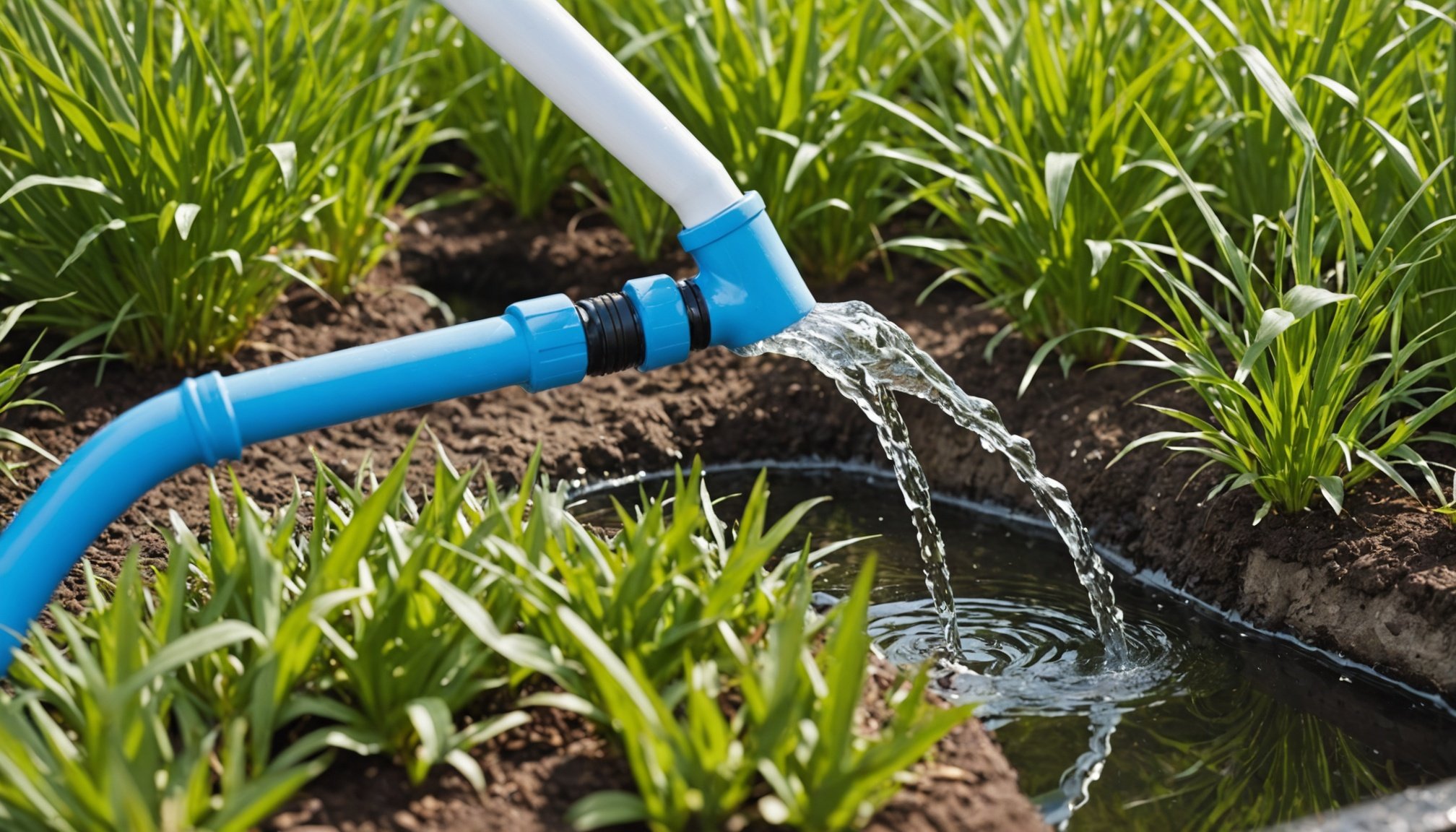Overview of Water Consumption in UK Households
Understanding water usage statistics in UK households is essential to grasp the broader environmental impact. On average, a household in the UK uses approximately 142 litres per person daily. This household water consumption contributes significantly to environmental stress, given the energy-intensive processes involved in water treatment and distribution.
The environmental impacts of high water usage are far-reaching. Not only does it strain natural water resources, leading to scarcity and ecosystem disruption, but it also increases carbon emissions due to the energy required for heating water. As water becomes scarcer, the cost of management rises, impacting both the economy and the environment.
Topic to read : Key elements to keep in mind for developing cost-effective housing in dense urban areas
Addressing this issue is crucial. Reducing household water consumption can lower these environmental impacts and enhance sustainable living practices. By being aware of consumption patterns and actively seeking ways to reduce water usage, households can significantly contribute to conservation efforts.
This knowledge can empower individuals and communities to take decisive action. Opting for water-efficient appliances, educating on consumption habits, and supporting policies focused on sustainability are critical steps in mitigating the environmental impacts associated with high household water consumption.
In parallel : Discover the enduring benefits of opting for high-quality building materials in your projects
Innovative Strategies for Reducing Water Use
Embracing water-saving technology is crucial for sustainable living. Modern plumbing innovations significantly aid in reducing excessive water use in households. Devices like aerated taps and dual-flush toilets are designed to minimize water waste while maintaining efficiency. Smart meters actively monitor usage patterns, alerting homeowners to leaks or excessive consumption.
Employing innovative tactics extends beyond technology. Implementing rainwater harvesting systems can drastically reduce reliance on mains supply for non-potable uses such as gardening and flushing toilets. Greywater recycling systems repurpose water from baths and sinks for irrigation, contributing further to conservation efforts without sacrificing convenience.
Additionally, inventive household strategies can have a significant impact. Encouraging residents to adopt water-efficient practices in daily routines, such as turning off taps while brushing teeth and opting for shorter showers, can lead to substantial savings. Case studies reveal that households adopting comprehensive water-saving measures see notable reductions in consumption, underscoring the success of incorporating these methods.
Remarkably, several households in the UK have achieved significant water reductions. One notable project integrated all the aforementioned strategies, resulting in a 20% decrease in usage. Such examples illustrate the efficacy of combining advanced technology with creative everyday tactics to address the ongoing challenge of decreasing water usage statistics.
Practical Tips for Everyday Water Conservation
Incorporating simple water-saving tips into daily routines can dramatically lower household consumption. Here are some effective, everyday actions:
- Turn off the tap while brushing teeth to save approximately 6 litres per minute.
- Opt for shorter showers. Reducing shower time by just one minute can save up to 7 litres of water.
Investing in water-efficient fixtures like aerated showerheads and taps can also make a significant impact. These fixtures reduce water flow without sacrificing performance. Additionally, using appliances such as dishwashers and washing machines with high efficiency ratings can further curtail waste.
Education and awareness are vital in promoting water conservation. Understanding the broader environmental implications of household water consumption empowers individuals to change their habits. Consider incorporating informational sessions about water-saving methods at community centers or schools.
Awareness programmes encourage responsible habits and highlight the tangible benefits of conservation efforts. Equipping individuals with knowledge fosters a proactive approach to resource management. Such education ensures that even small changes are long-lasting and impactful, leading to substantial environmental and economic benefits. Through collective effort, these subtle shifts in daily habits result in significant reductions of the UK’s overall water footprint.
Economic Benefits of Reducing Water Consumption
Embracing cost-saving strategies for reducing water usage brings significant financial benefits to households. By cutting down on water bills, families can experience substantial savings over time.
When discussing long-term economic impact, initial investments in water-efficient technologies may seem daunting. However, the reduced operational costs quickly offset these expenses. Investing in devices such as aerated taps and low-flow toilets reduces waste, leading to lower monthly water expenses.
To further amplify financial returns, households can exploit government incentives and funding opportunities. Many UK initiatives support sustainable living practices by offering rebates and grants for integrating water-efficient appliances and systems. This financial assistance makes adopting new technologies more accessible, encouraging broader participation in water conservation efforts.
In addition, aligning household practices with local programs can amplify these benefits. Communities that actively engage in water-saving campaigns often see a decline in communal water costs, benefiting individual expenses and fostering collective financial resilience.
By understanding and implementing these economic benefits, households not only contribute to environmental conservation efforts but also enjoy freedom from excessive utility bills. This dual advantage reinforces the importance of sustainable water management as a valuable investment for both present and future prosperity.
Local Policies and Initiatives Supporting Water Conservation
Government policies and local initiatives play a pivotal role in shaping household water conservation practices across the UK. UK water regulations have been established to monitor and manage water usage effectively. These regulations set standards for water efficiency, ensuring that consumption stays within sustainable limits.
Local initiatives amplify these efforts by tailoring solutions to community-specific needs. For instance, some local councils offer financial incentives for households that implement water-saving measures, making them more appealing to residents.
Government backing for these initiatives significantly enhances their effectiveness. Funding is often allocated to both new and ongoing projects aimed at promoting sustainable water usage. Initiatives like community workshops or school education programs raise awareness and empower residents to take concrete steps towards conservation.
Supportive policies manifest in various forms, such as subsidising the installation of water-efficient appliances or implementing stricter building codes that mandate water conservation measures. By aligning household practices with these frameworks, communities benefit from reduced water costs and enhanced resource management.
Collectively, these initiatives and regulations drive the UK towards a more sustainable water future. Their effectiveness underscores the importance of comprehensive policies and robust community involvement in addressing household water consumption challenges.
Engaging the Community in Water Reduction Efforts
Active community involvement is crucial in driving successful water reduction initiatives. Local collaboration fosters shared responsibility, making water conservation a collective endeavor rather than an individual effort. Campaigns aiming to improve social awareness about sustainable water usage have seen notable successes in various UK regions.
One prominent example includes neighbourhood groups organising water conservation workshops. These events focus on educating locals about practical water-saving tips and the environmental and economic benefits of reducing water usage. By tailoring sessions to community-specific challenges, these campaigns ensure relevance and engagement.
Community gardens can serve as hubs for spreading water conservation campaigns. They provide hands-on experience with water-saving techniques such as using mulch or drip irrigation systems. This practical application instills long-lasting habits among participants, who then champion these practices within their own households.
Promoting joint efforts through local media, schools, and social platforms enhances the reach of these initiatives. Creating an environment of shared ambition ensures collective action towards water reduction becomes the norm. These collaborative efforts don’t just conserve water; they build a stronger sense of community commitment toward sustainable living.
Through these combined strategies, communities can make significant strides in reducing water consumption, benefiting both the environment and local resources.











